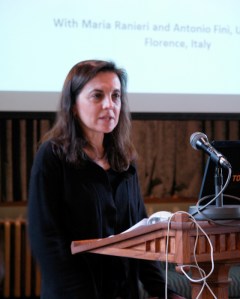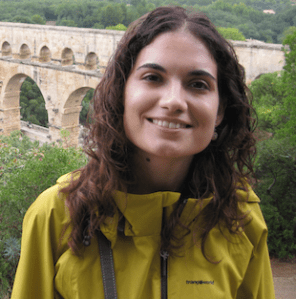The voice of invited experts through Webinars, about their own approaches to building participatory, fair, balanced data cultures
Webinar Series
Data Cultures in HE: Emerging practices, professionalism and the challenge of social justice
Presentación
The Initiative
Digital data, as a sort of DNA of information, are addressing contemporary social practices. The most enthusiastic discourse on data abundance has emphasized the opportunity to generate new business models, new professional landscapes connected to the science of data, open practices in science and the public space (Kitchin, 2014). More recently, the rather naïve logic of data capture and articulation throughout several algorithms as drivers of more economical and objective social practices has been the object of criticism and deconstruction (Milan & van der Velden, 2016). In the civic society, there is concern and activism towards empowerment and agency regarding data futures (Barghava et al., 2015; D’Ignazio & Bhargava, 2015; Taylor, 2017). The university as an institution fell into this paradigm somehow abruptly, while striving to survive its crisis of credibility. The digitalization of processes and services was hence considered a form of innovation and laid the foundations for the later phenomenon of datafication (Daniel, 2015) Initially fervent discourses embraced data-driven practices as an opportunity to improve efficiency, objectivity, transparency and innovation (Perrotta & Williamson, 2018). The two main missions in Higher Education, teaching and research, went through several processes of digitalization that encompassed data-intensive practices. From the side of teaching, the data collected about learning and learners on unprecedented scales, has given birth to educational data mining and particularly to learning analytics, which in turn has led to techno-determinist visions of educational quality. While there is doubtless value in the developments proposed by learning analytics to support teachers’ pedagogical practices and learners self-regulation (Ferguson, 2012), there are frequent assumptions on the power of algorithms to predict, support or address learning that could prevent agentic and transformational practices if unsupervised(Slade, 2016; Williamson, 2016). The studies in the field have pointed out the scarce connections of LA models and pedagogical theories (Knight, Buckingham Shum, & Littleton, 2014; Nunn, Avella, Kanai, & Kebritchi, 2016), the lack of evaluation in authentic contexts, the difficult uptake by teachers and learners (Vuorikari et al., 2016), and the social and ethical issues connected to the topic(Prinsloo & Slade, 2017; Slade & Prinsloo, 2013). Moreover, the massive adoption of social media at the crossroads with learning management systems implies new forms of data from which both teachers and students could be completely unaware (Manca, Caviglione, & Raffaghelli, 2016)
It is also necessary to consider, at this point, the paradigm of Open Data (as part of the public endeavor), which invites citizens to both explore and contribute to the data collected by public governement and particularly researchers with greater precision, is generating an opportunity to innovate teaching and learning. The scholarly practice might address new connections between research and teaching through the use of Open Data as Open Educational Resources (Atenas, Havemann, & Priego, 2015), towards a widespread responsible research and innovation culture. Moreover, it could cast a strategic vision of Open Education Science (van der Zee & Reich, 2018), as the datasets yielded from educational design-based research could be critically reviewed and shared in a broad educational community. However, actual practices in Higher Education reveal several issues in implementing these types of innovations (Raffaghelli & Manca, 2019; Raffaghelli, 2018).
Above all, the appropriation of data in relevant ways requires reflective and critical skills, demonstrated in terms of data literacies in several areas of life, including educational contexts (Pangrazio & Selwyn, 2019; Wasson, Hansen, & Netteland, 2016). Data literacy should be intended beyond the technical skills needed to handle data, covering activism and reflection leading to more agentic forms of analyzing, evaluating, and sharing data, with a vision of social justice as the ultimate goal.
Hence, beyond a dystopian vision, data could be dealt with as a base to discuss current academic practices, revisiting the new contingencies datafication imposes in the relationship between teachers and students and towards society. In this regard, it is crucial to share a number of debates coming from social and political research over data justice (Taylor, 2017) data and agency (Kennedy, Poell, & van Dijck, 2015). Creative and fair ways of approaching data could emerge as part of awareness and agency in building data cultures in HE, approaching the Freirian critical pedagogy to the literacies required to deal with data (Tygel & Kirsch, 2016).
In this context, the present Webinar Series attempts to raise awareness, discuss and eventually generate proposals for transformative, fair and agentic practices related to datafication in HE.
Some of the questions that we’ll address during the Seminars include the following:
- What type of data is collected in specific institutional cases, and what are the subsequent conceptual and pedagogical foundations required to process this data?
- What problems of usability of data and data visualizations (i.e. learning analytics’ dashboards) have been observed along one or more cycles of authentic evaluation?
- How are teachers addressing the pedagogical practices on the basis of the available data? How do they surf the data-abundance, across institutional and social contexts of digital learning?
- How are students addressing their learning processes across the data-driven devices and resources? How do they surf the data-abundance, across institutional and social contexts of digital learning?
- Is there critical awareness on the visibility and usage of institutionalized and social data?
- What types of skills and abilities are required to search, analyze, adopt and share the data connected to teaching and learning processes in Higher Education?
- How can the data and data interpretations be shared, to encourage open education science and open educational practices?
The Webinar Series will discuss theories and apparatuses; while also exploring cases and instruments to reflect and transform practices as part of an empowering data culture in HE.
Juliana E. Raffaghelli – Webinar Series Coordinator
Videos (In Progress)

Bonnie Stewart – University of Windsor
Stefania Manca – National Research Council of Italy
Davinia Hernández Leo – Universitat Pompeu Fabra
Rahul Bhargava – MIT MEDIA LAB
Patricia Díaz – Universidad de la República de Uruguay
Regina Motz – Universidad de la República de Uruguay
Caroline Kuhn – School of Education – University of Bath Spa
Momin M. Malik – Berkman Klein Center
for Internet & Society
Harvard University
Nan Yang
Beijing Academy of Educational Sciences
Valentina Grion –
University of Padua
Teresa Sancho Vinuesa –
Universitat Oberta de Catalunya
Pablo Rivera Vargas
Universitat de Barcelona
Programme
0- Introduction- The Data Cultures Initiative
- Albert Sangrà, Montse Guitert, Juliana E. Raffaghelli – Universitat Oberta de Catalunya (Spain), Faculty of Psychology & Education, Edul@b Research Group on Education and Technologies. November 2019
1- The ProSocial Web: Why Open Digital Practices Matter in the context of datafication.
- Bonnie Stewart – University of Windsor (Canada), Faculty of Education – 4 December 2019
- Recorded Session with subtitles in Spanish.
- Transcription & Translation Eng-Spa
2- “We used to have fun but then data came into play…”: Potentials and pitfalls of social media in academic professional development.
- Stefania Manca – National Research Council of Italy, Institute of Educational Technologies. 28 January 2020
- Recorded Session with subtitles in Spanish
- Transcription & Translation Eng-Spa
3- Open Data in Educational Research: the state of play, instruments and challenges
- Davinia Hernández Leo – Universitat Pompeu Fabra (Spain)– Department of Information and Communication Technologies – TIDE Research Group on Interactive and Distributed Technologies for Education – 13 March 2020
- Recorded Session with subtitles in English
- Transcription & Translation Eng-Spa
4- Open Data as driver of critical data literacies in Higher Education: Which Data, Which Openness?
- Javiera Atenas (Iniciativa Latinoamericana Datos Abiertos) & Juliana Raffaghelli – En colaboración con Virginia Brussa (Universidad Nacional de Rosario, ARGENTINA) and Gimena del Rio Riande (Red Argentina de Educación Abierta, ARGENTINA) – 24 April 2020
5- Building Data Cultures: narratives and activism from the Civil Society
- Rahul Bhargava – MIT Media Lab (US) – 20 May 2020
- Recorded Session with subtitles in Spanish
- Transcription & Translation Eng-Spa
6- Fair learning analytics: design, participation and transdiscipline in the techno-structure
- Patricia Diaz – Núcleo de Recursos Educativos Abiertos y Accesibles del Espacio Interdisciplinario – Universidad de la República (URUGUAY)
- Regina Motz – Instituto de Computación de la Facultad de Ingeniería, Universidad de la República- Universidad de la República (URUGUAY)
- Caroline Kuhn – School of Education – University of Bath Spa (UK)
- Recorded Session with subtitles in English
- Transcription & Translation Eng-Spa
6 July 2020
7- A hierarchy of limitations in Machine Learning. Biases in Social Data
- Momin M. Malik – Harvard University (US) Berkman Klein Center for Internet & Society – 29 September 2020 –
8- How Stakeholders’ Data Literacy Contribute to Quality in Higher Education.
- Nan Yang – Beijing Academy of Educational Sciences (China) – 16 October 2020 –
9- Sustainable Metrics in Higher Education: from assessment of learning to assessment for learning
- Valentina Grion – University of Padua, Department of Philosophy, Sociology, Education and Applied Psychology FISPPA – 26 November 2020
10- How to build fair data cultures in Higher Education? Overcoming the tensions between technology and a social critique [SPANISH]
- Juliana E. Raffaghelli, Albert Sangrà, Montse Guitert. – Universitat Oberta de Catalunya (Spain), Faculty of Psychology & Education, Edul@b Research Group on Education and Technologies. Discussants: Teresa Sancho (UOC, Professor of IT, Multimedia and Telecommunications Department, LAIKA research group) Pablo Rivera Vargas (UB, Professor of Education, Teaching, Learning and Educational Management, ESBRINA Research group)– 16 December 2020
- Intro
- Albert Sangrà – Director of UOC UNESCO Chair in Educational Technologies for Social Change
- Montse Guitert – Director of Research Group Edul@b
- Juliana E. Raffaghelli – Universitat Oberta de Catalunya
- Discussant – Pablo Rivera Vargas – Universitat de Barcelona